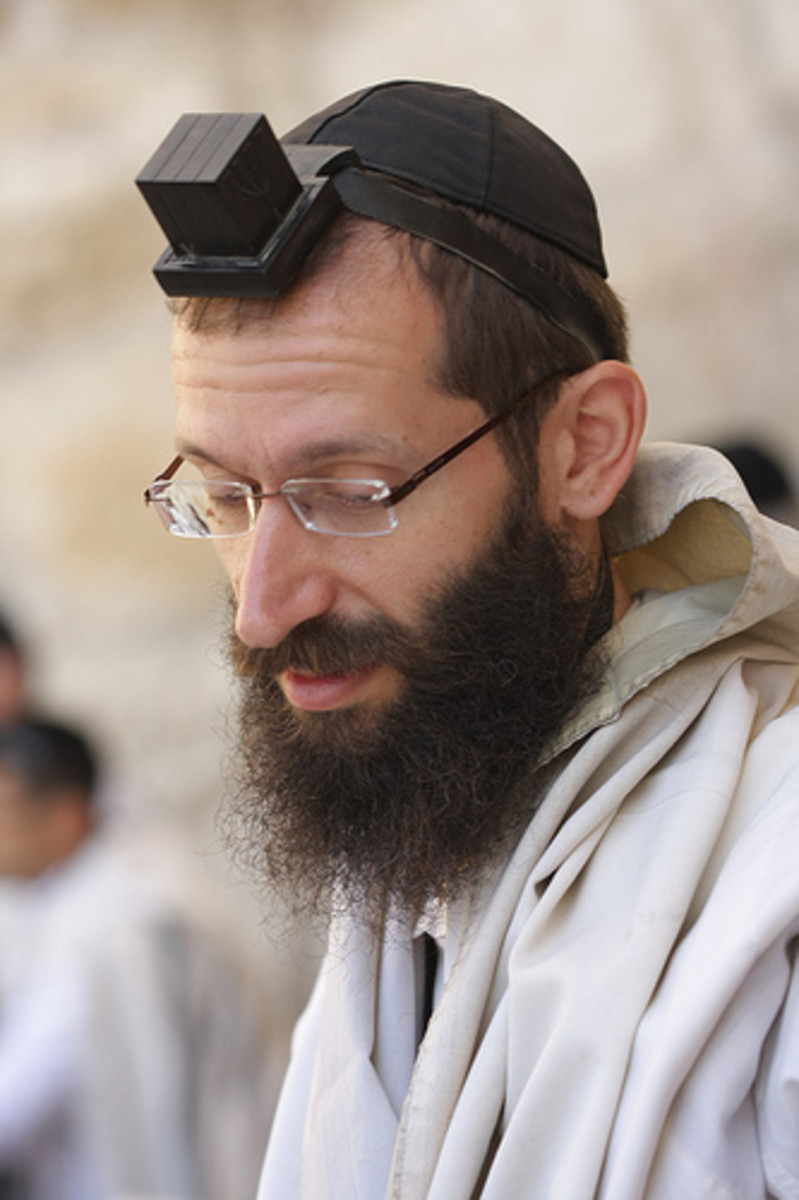"Church" - The TRUE Meaning

Modern English language and modern culture has several ideas as to what the word "church" means." For example, when we see a building with a steeple on it, we point to it and say, “That is a church.” This is one modern usage – a building. Another current usage of “church” is a group of people who gather for religious ritual. We also refer to various denominations such as the Methodist, Presbyterian or Roman Catholic as churches. Another usage of the word “church” is a group of people who are born again of God’s Spirit. The meaning of “church” varies with its context. But God has given us a more precise, profitable and enjoyable way to view this subject of "church."
The Greek word for our English word “church” in the Bible is ekklesia, meaning “the called-out.” People may be called out for various reasons; for example, if a group of people decided they were going bowling and then gathered at the bowling alley, they would be an ekklesia because they are called out to bowl. In Acts 19 a mob is called a church, an ekklesia. Why? Because a mob is composed of a group of people who have gathered for a specific purpose.
Acts 19:23-32:
- "And the same time there arose no small stir about that way.
- For a certain man named Demetrius, a silversmith, which made silver shrines for Diana, brought no small gain unto the craftsmen;
- Whom he called together with the workmen of like occupation, and said, Sirs, ye know that by this craft we have our wealth.
- Moreover ye see and hear, that not alone at Ephesus, but almost throughout all Asia, this Paul hath persuaded and turned away much people, saying that they be no gods, which are made with hands:
- So that not only this our craft is in danger to be set at nought; but also that the temple of the great goddess Diana should be despised, and her magnificence should be destroyed, whom all Asia and the world worshippeth.
- And when they heard these sayings [of Demetrius], they were full of wrath, and cried out, saying, Great is Diana of the Ephesians.
- And the whole city was filled with confusion: and having caught Gaius and Aristarchus, men of Macedonia, Paul’s companions in travel, they rushed with one accord into the theatre.
- And when Paul would have entered in unto the people, the disciples suffered him not. And certain of the chief of Asia, which were his friends, sent unto him, desiring him that he would not adventure himself into the theatre.
- Some therefore cried one thing, and some another: for the assembly [ekklesia, the church] was confused; and the more part knew not wherefore they were come together."
A large company of silversmiths under Demetrius were stirred up for fear that their comfortable income was being diminished by Paul’s coming to town. Paul preached the greatness of God’s good news about His Son Jesus Christ our Lord which is against the usage of medals, amulets and charms to represent God and His blessings. Although the mob wasn’t certain what the real issue was, Demetrius had emotionally incited them against Paul. One group cried one thing and some another because the church, the assembly, the ekklesia was confused. “And the more part knew not wherefore they were come together.” This is a mob – following along with the confused assemblage. The word “assembly” in Acts 19 is ekklesia, church, the called-out.
The Church [ekklesia] of the Body, which in this administration of Grace is the Church of Grace, is also called the Church of God.
- Ephesians 1:22,23: “And hath put all things under his feet, and gave him to be the head over all things to the church [ekklesia], Which is his body, the fullness of him that filleth all in all.”
- Ephesians 3:2: “If ye have heard of the dispensation of the grace of God which is given me to you ward.”
- 1 Corinthians 1:2: “Unto the church of God which is at Corinth, to them that are sanctified in Christ Jesus, called to be saints, with all that in every place call upon the name of Jesus Christ our Lord, both theirs and ours.”
God presently has just one church on earth. People divide it into segments, but God does not. In 1 Corinthians God classifies people into only three groups, "Jews, Gentiles and the Church of God":
- 1 Corinthians 10:32: "Give none offense, neither to the Jews, nor to the Gentiles, nor to the church of God:"
Jesus came to fulfill the Law and to make the Church of God available. When all things were ready, the Church of Grace was founded and the new birth was made available. From the day of Pentecost until the return of Christ everyone who is born again by God’s Spirit is a member of the Church of Grace, the Body of Christ. The membership of this Church of the Body consists of all those called out from among both Jew and Gentile. Therefore, any Jew or Gentile who confesses Jesus Christ as his Lord and believes that God raised him from the dead becomes a member of the Body of Christ, the Church of the Body.
From God's perspective there is only one "Church" presently in operation upon the earth. This "Church of the Body" came into being about fifty days after the resurrection of Jesus, "when Pentecost had fully come" [see Acts 2:1]. It was on that special day of celebration when people first received the new birth, the "power from on High," the "promise from the Father" [see Luke 24:49 and Acts 1:4). Many of them could not explain nor comprehend the fullness of the miracle which had occurred, just as many people cannot explain electricity although they enjoy the utilization of it.
On the day of Pentecost, and for a period of time following, the believers had the fullness of all that God had made them to be in Christ, but they were still in the process of learning what they had. Years later, the revelation to fully explain the gift that came on the day of Pentecost was given to the Apostle Paul. To Paul was revealed the greatest mystery the world has ever known – the mystery of the Body of Christ, "which is his Church" [ekklesia]. To discover what this mystery revealed to and through Paul was, let's look in Romans 16 and Ephesians 3:
Romans 16:25, 26:
- "Now to him that is of power to establish you according to my gospel, and the preaching of Jesus Christ, according to the revelation of the mystery, which was kept secret since the world benefited from the new birth and the power from the began,
- But now is made manifest, and by the scriptures of the prophets [not the Old Testament prophets, but the post-Pentecost prophets who are members of the Church, the Body], according to the commandment of the everlasting God, made known to all nations for the obedience of faith."
Ephesians 3:2-5:
- "If ye have heard of the dispensation [or the administration] of the grace of God which is given me to you-ward:
- How that by revelation he made known unto me the mystery; (as I wrote before in few words [we just read those few words from Romans 16], Whereby, when ye read, ye may understand my knowledge in the mystery of Christ)
- Which in other ages was not made known unto the sons of men, as it is now revealed unto his holy apostles and prophets by the Spirit."
The founding of the Church of the Body was not made known in other ages; thus the prophets of the Old Testament did not know about the Church of Grace; neither did the people living at the time of the Gospels. But it is “now [lately] revealed unto his holy apostles and prophets by the Spirit.”
Once the timing of the revelation of the mystery is clear, the essential question remains: What is the mystery?
- Ephesians 3:6: "That the Gentiles should be fellowheirs, and of the same body, and partakers of his promise in Christ by the gospel."
It was no mystery that the Gentiles would be blessed under Abraham’s and David’s ministries and during Israel’s reign. Examples of the Gentiles’ being blessed are scattered throughout the Old Testament. But the Old Testament does not give the slightest inkling that the Gentiles would ever be fellowheirs or joint-heirs, “of the same body, and partakers of his promise in Christ by the gospel” , nor that the key for all men to "partake" of these blessing would be "by the gospel." The revelation of the Gentiles being fellowheirs in Christ, and that walking with God was now by grace and no longer the Law, was to say the least, revolutionary news.
- Ephesians 3:7,8: "Whereof I was made a minister, according to the gift of the grace of God given unto me by the effectual working of his power. Unto me, who am less than the least of all saints, is this grace given, that I should preach among the Gentiles the unsearchable riches of Christ."
The word “unsearchable” can be translated “untrackable.” The mystery of the riches of God’s grace to the Gentiles could literally not be tracked in the Word of God from the Old Testament through the Gospels. That the Gentiles should be fellowheirs and of the same Body, and that all would be under the same rule of walking by faith and not works, that Christ's accomplished work puts everyone into the same category of being God's children, complete in Christ, wherein all the fullness of God dwells, was a secret, hidden from the beginning of the world.
- Ephesians 3:9: "And to make all men see what is the fellowship of the mystery, which from the beginning of the world hath been hid in God, who created all things..."
The revelation was made known “to make all men see what is the fellowship of the mystery.” The word “fellowship” in the Greek text is the word “administration.” The “fellowship of the mystery” is literally the “administration of the church of grace.”
- Colossians 1:26,27: "Even the mystery which hath been hid from ages and from generations, but now is made manifest to his saints: To whom God would make known what is the riches of the glory of this mystery among the Gentiles; which is Christ in you [acceptance of our unification and identity with him - just read the context of this verse and see for yourself], the hope [confident expectation] of glory [being enlightened, illuminated, shining]."
The mystery, so important that it was kept secret since the foundation of the world, is that all born again believers, those of Judean background and all others, would be fellowheirs of Christ, and that by way of believing who and what we are in Christ, the full authority and power of Christ could be manifest in every one of us. Imagine that! Now that Jesus Christ has completed his work at the cross and ascended into heaven, his complete power and authority over the devil can be accepted and exercised by every born-again believer, at any place, any time.
Wherever a believer is, in effect, it is as if Christ himself present. God honors and backs His Word, He honors and backs the accomplished work of His Only Begotten Son, Jesus Christ our Lord! Had the devil known this mystery he would never have crucified Jesus. Through Jesus’ death, resurrection and ascension, a greater power than any other in history has been made available to all nations and peoples of the world. The devil was totally unaware of God’s plan, as told in 1 Corinthians:
1 Corinthians 2:7,8:
- "But we speak the wisdom of God in a mystery, even the hidden wisdom, which God ordained before the world unto our glory:
- Which none of the princes of this world knew: for had they known it, they would not have crucified the Lord of glory."
The devil as ruler of all these "princes of the world" would much rather have had Jesus Christ personally present on earth than to have thousands of believers spread across the entire globe believing who they are and what they have in Christ. By crucifying the Lord of Glory, Satan brought an unsolvable problem to himself. And you can just imagine why he works so hard to keep the glorious light of the gospel hid from God's people, even withing the church of the body, and why God has so many of us function within the body to hold forth the true message from God to one another.
Obviously the devil was not the only one who was ignorant of the intentions of God. Many men before the time of the Church of Grace tried to find out about this period. Peter told of the Old Testament prophets’ quests.
1 Peter 1:10,11:
- "Of which salvation the prophets have inquired and searched diligently, who prophesied of the grace that should come unto you:
- Searching what, or what manner of time the spirit of [regarding Christ, the messiah] which was in [upon] them did signify, when it testified beforehand the sufferings of Christ, and the glory that should follow."
These Old Testament prophets diligently searched the Scriptures for the time lapse between the Four Gospels (Matthew, Mark, Luke and John) and the book of Revelation, between the suffering of Christ and His glory. But this period of grace could not be found because it was completely hidden.
This age of grace in which you and I live was indicated by Jesus’ reading of Isaiah 61 which is recorded in Luke:
- Luke 4:16: "And he [Jesus] came to Nazareth, where he had been brought up: and, as his custom was, he went into the synagogue on the sabbath day, and stood up for to read."
A wise and interesting tradition in the synagogues at the time was that whenever a man read from the Scriptures, he always stood to show respect for the sacred scrolls and to show that he was reading what was written, not just talking on his own. When a man finished reading from the scrolls and began teaching and discussing, he sat down. When the man sat down, the listeners were not certain that the man was still giving them the Word of God. But when the minister was standing and reading the congregation knew that they were hearing God's Word. This was their culture, this is what they believed, this is why Jesus stood as he read this passage from Isaiah.
- Luke 4:17: "And there was delivered unto him the book [scroll] of the prophet Esaias [Isaiah]. And when he had opened the book, he found the place where it was written."
How thoroughly Jesus must have studied the scroll of Isaiah! These were some very long scrolls; moreover Jesus did not have the help of chapters and verses or center references like we do today, he “opened the book [and], he found the place where it was written.”
There is a story told of a man who said that all he had to do to find God’s guidance each morning was to flip through the Bible and, while covering his eyes, place his finger on a verse. The verse on which his finger landed was his guidance for the day. An interesting guidance was given to this man one morning as he casually flipped to a page in the New Testament. He placed his finger on a verse, opened his eyes, and read, “And Judas went and hanged himself.” The man was dissatisfied with this guidance, so he flipped to another page, and this time read, “Go and do thou likewise.” Shocked, the man gave his method a third try only to read, “That which thou doest, do quickly.”
In contrast to this fellow, Jesus "found" the place where it was written; he deliberately located the Scripture he needed at that particular time. Jesus was prepared, as Luke 4 demonstrates.
Luke 4: 18-21:
- "The Spirit of the Lord is upon me, because he hath anointed me to preach the gospel to the poor; he hath sent me to heal the brokenhearted, to preach deliverance to the captives, and recovering of sight to the blind, to set at liberty them that are bruised.
- To preach the acceptable year of the Lord. And he closed the book, and he gave it again to the minister, and sat down. And the eyes of all them that were in the synagogue were fastened on him.
- And he began to say unto them, This day is this scripture fulfilled in your ears."
Jesus stopped reading with the phrase, “to preach the acceptable year of the Lord,” and sat down saying, “This day is this scripture fulfilled in your ears.” Compare Luke 4 with Isaiah 61 from which Jesus read:
- Isaiah 61:2: "To proclaim the acceptable year of the Lord, and the day of vengeance of our God."
Isaiah says, “To proclaim the acceptable year of the Lord, and the day of vengeance of our God.” but Jesus never read the last eight words. Why did he stop in the middle of the phrase? Had Jesus read the words “the day of vengeance of our God,” and then said, “This day is this scripture fulfilled,” Jesus would have been in error. Jesus could not say, “This day is the day of vengeance of our God fulfilled in your ears,” because the day of vengeance had not yet come. The “day of vengeance of our God” will be fulfilled with the prophecy of Revelation when Christ will return as King of Kings and Lord of Lords with all the power of God.
Jesus accurately divided the word of truth. The Christ was to preach the acceptable year of the Lord and had done that – it was fulfilled. The day of vengeance had not yet come. In Isaiah 61:2 a comma is placed after the expression “to preach the acceptable year of the Lord,” while in Luke 4:19 a period follows the same statement. This comma in Isaiah 61:2 represents all the years from the day of Pentecost until the time the Lord Jesus Christ will come again - the time frame in which we are now living. This intervening time is the period of Grace, the Church to which post-Pentecost believers belong, which was still a mystery at the time of the writing of Isaiah.
The time of the Church of Grace is also referred to in the Bible as the day of man’s judgment. Paul's makes reference of this truth in 1 Corinthians:
- 1 Corinthians 4:3: "But with me it is a very small thing that I should be judged of you, or of man’s judgment."
The words “of man’s judgment” are “man’s day.” People do the judging today during the age of Grace for it is man’s day. If this were not so, a person would not be able to curse God, use His name in vain, nor live like the devil himself. In this age of Grace people are free to think and do as they please, but there is another judgment coming as Revelation indicates:
- Revelation 1:10: "I was in the Spirit on the Lord’s day..."
What exactly is the Lord’s Day? Some people speak loosely of the Lord’s Day as Sunday, yet for another group of people the Lord’s Day is the Sabbath, Saturday. Biblically speaking, the Lord’s Day has nothing to do with the day of the week. The Lord’s Day is the age in which the Lord does the judging. In that age nobody will nail Him to a cross,nobody will curse Him, nobody will mock Him, for His return as King of Kings will usher in the age of the vengeance of God spoken of in Isaiah 61.
To live in this age of Grace, an age which was kept secret from the foundation of the world until it was revealed to Paul, is a tremendous privilege. Man has power and status in Christ which no other age has ever known.
The people of God who lived under the terms of the Old Covenant did not know of the Church of Grace that was to come. The Church of Grace, the Church of the Body, was founded on the day of Pentecost when the promise of the Father (the new birth - power from on high) first became available. This happened about fifty days after the resurrection of Jesus Christ. During the period of the Church of the Body, all believers are one in Christ Jesus who is the head of that Body - the ekklesia of God [or God's ekklesia, God's called-out, God's church, God's Family). Each born-again believer manifests Christ in their lives to the degree that they renew their minds to what is true of them in Christ. No other people of any other age has had this potential power for manifesting the greatness of God that the members of the Church of Grace now have. What a fantastic time that we live in! We must not allow the power that is available to us in Christ remain dormant. The gospel is the power of God. Now that we are in Christ spiritually, let us get these realities into the heart of our minds and show forth our power to defeat the devil and his forces of evil. We are more than conquerors now! Jesus Christ is Lord and we are now fellowheirs with him. What a privilege! What a joy! What a fellowship divine! Thank you Father!








